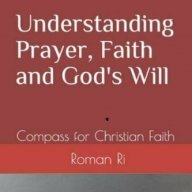Yes you got it right in the first half: "The Bible never speaks about God choosing individuals ... What God chose before the foundation of the world was His gracious and appropriate plan to send His Son to redeem sinners to Himself and restore them to His image". However, I cannot quite agree that "All who meet the conditions to partake in this plan are chosen (i.e. elect) ..."
If we interpret Bible in context, God did not choose individuals to redeem, as some people erroneously claimed. Ephesians chapter 1,2,3 explain predestination in 70 verses: It is corporate predestination, which means
God offered redemption to Jews first, and then the Gentiles -- which together means everyone. God offers to redeem all, but in the context of the Scripture, each one must decide whether to repent and turn to Him. Predestination is so misunderstood because people are so awed by words such as "He predestine us" and fail to see context.
Ephesians was written to Gentile Christians.
Speaking as a Jew, Paul identified with his people by using the adverb 'we' and 'us' to say how God first chose the Jews:
[Eph 1:4-11] just as
He chose us in Him before the foundation of the world ... having been
predestined according to the plan of him …. (
12) in order that
we, who were the first to put our hope in Christ, ...(1
3).. Weren't the Jews the first to hope in Jesus?
Then when referring to the Gentiles, the apostle used the adverb "you" and "you who were Gentiles":
And
you also were included in Christ when you heard the message of truth …... Therefore, remember that formerly
you who are Gentiles by birth and “uncircumcised” ….. excluded from citizenship in Israel… (Eph 2:13) ..... For
He... has made the two groups one... His purpose was
... in one body to reconcile both of them to God through the cross… (3:18)... This mystery is that through the gospel
the Gentiles are heirs together with Israel,
members together of one body, and sharers together in the promise in Christ."
Before Jesus atonement, the Gentiles did not have access to Jehovah. But after Christ’s atonement, both Jews and Gentiles have access to God. This move has been pre-planned or predestined by God. Predestination just means to pre-plan something. More important is what did God pre-plan?
We know that initially Israel was the chosen people of God. After Christ's atonement, the apostles initially thought that God chose to save the Jews only. After Peter's vision, however, the Gentiles were allowed to believe too. But as more Gentile Christians started to outnumber the Jewish believers, the Jews resented it and insisted that Gentiles should observe Sabbath and circumcision. Jews also claimed that God had suddenly decided to offer redemption to the Gentiles after Israel rejected Jesus, implying that Gentiles were less favored. Refuting such allegation, Paul said that God does not show favoritism between the circumcised and uncircumcised [Galatians 2:6].
In Ephesians, the apostle refers to Gentiles as the Elect [Eph 1], thus placing them on equal footing as the Jews (who are chosen). Elect or chosen is a status, it does not mean being chosen to be saved individually.
In the beginning -- before the foundation of earth -- God chose the Jews, but now the Gentiles are also part of the Elect. "Before the foundation of the earth" just means "initially". It is unfortunate that some people are so awed by the words "before foundation of the earth" and "predestination" because they do not interpret in context.
In Romans 9:11, God said He loves Jacob and hate Esau. God was referring to these 2 persons only, specifically, so how does this extend to chosen - and not being chosen - of everyone else? How does Romans 9:11 become a blanket statement ??? Seriously.
In Romans, Paul as a Jew saluted Israel's heritage, but he went on to say the new order is here, things have changed, get used to it.
Romans 9:18-23: Therefore hath he mercy on whom he will have mercy, and whom he will he hardeneth .... " While the Jews were shocked that God offered redemption to Gentiles, Paul said that God could choose to have mercy on Gentiles. It does NOT mean that God has mercy on some particular individuals and choose them. In the larger context of the Scripture, each one has to decide to repent and turn to God.
"For those God foreknew he also
predestined to be conformed to the image of his Son... He who predestined, He also justifies" [Romans 8:29] means that God foreknew that He would offer redemption to the Gentiles. Although they used to be considered uncleaned by the Jews, however, after Christ's atonement, the Gentiles can choose to be conformed to Christ. They are also justified by faith in Jesus.
Also, take note that Jesus during his ministry never spoke about God chose individuals to be redeemed.
When seen in context, Scripture interprets Scripture well, by itself.

